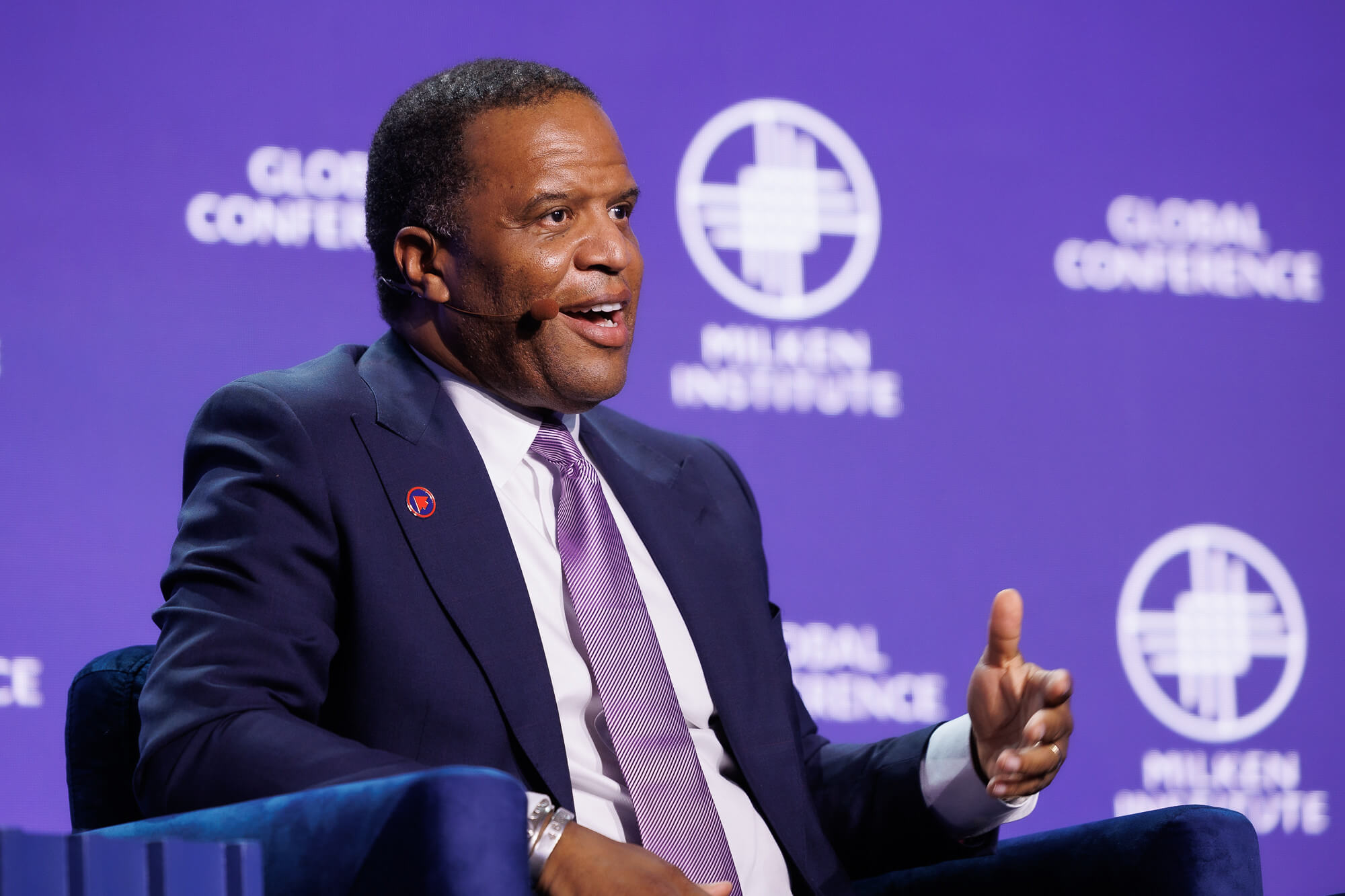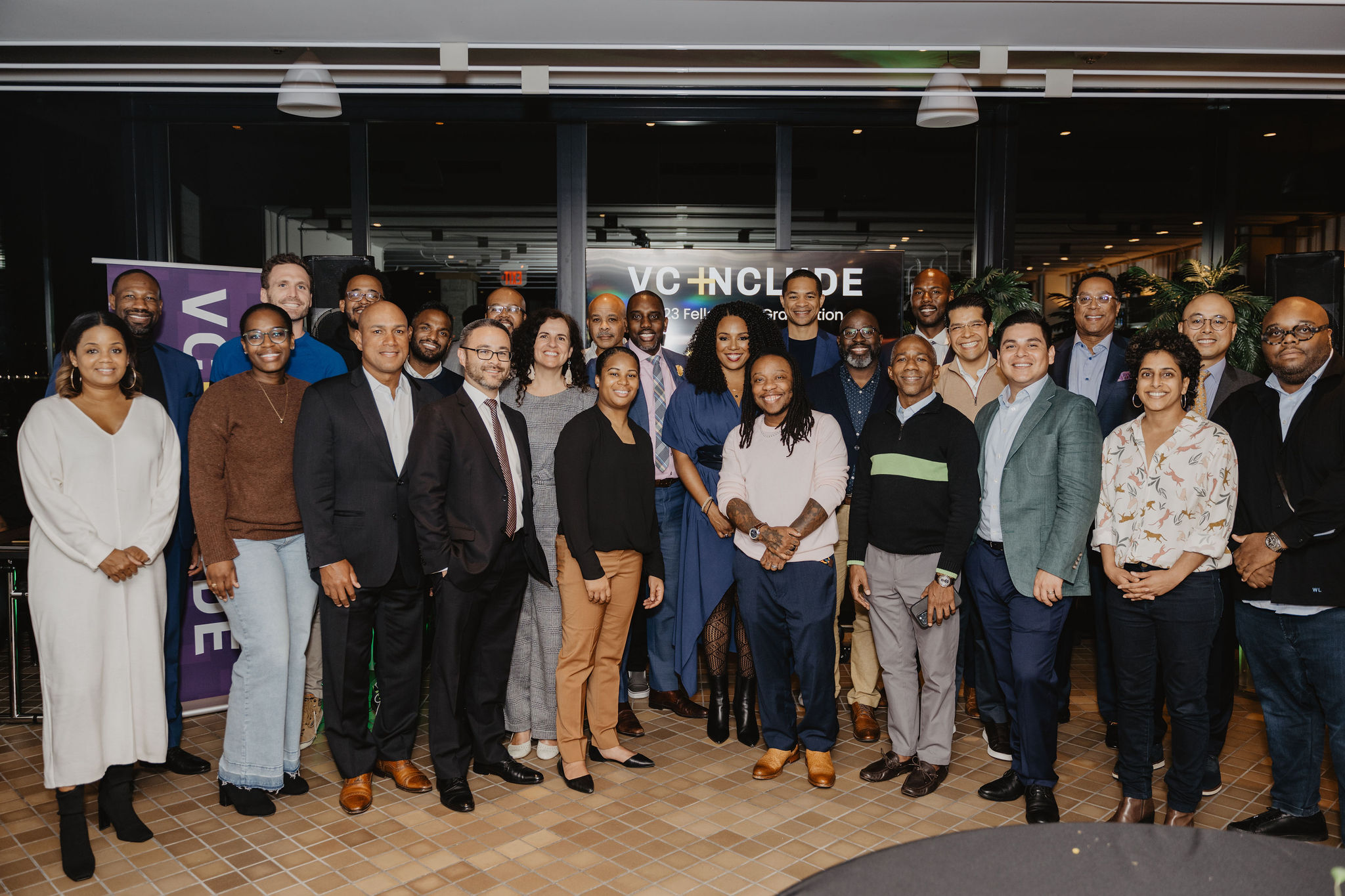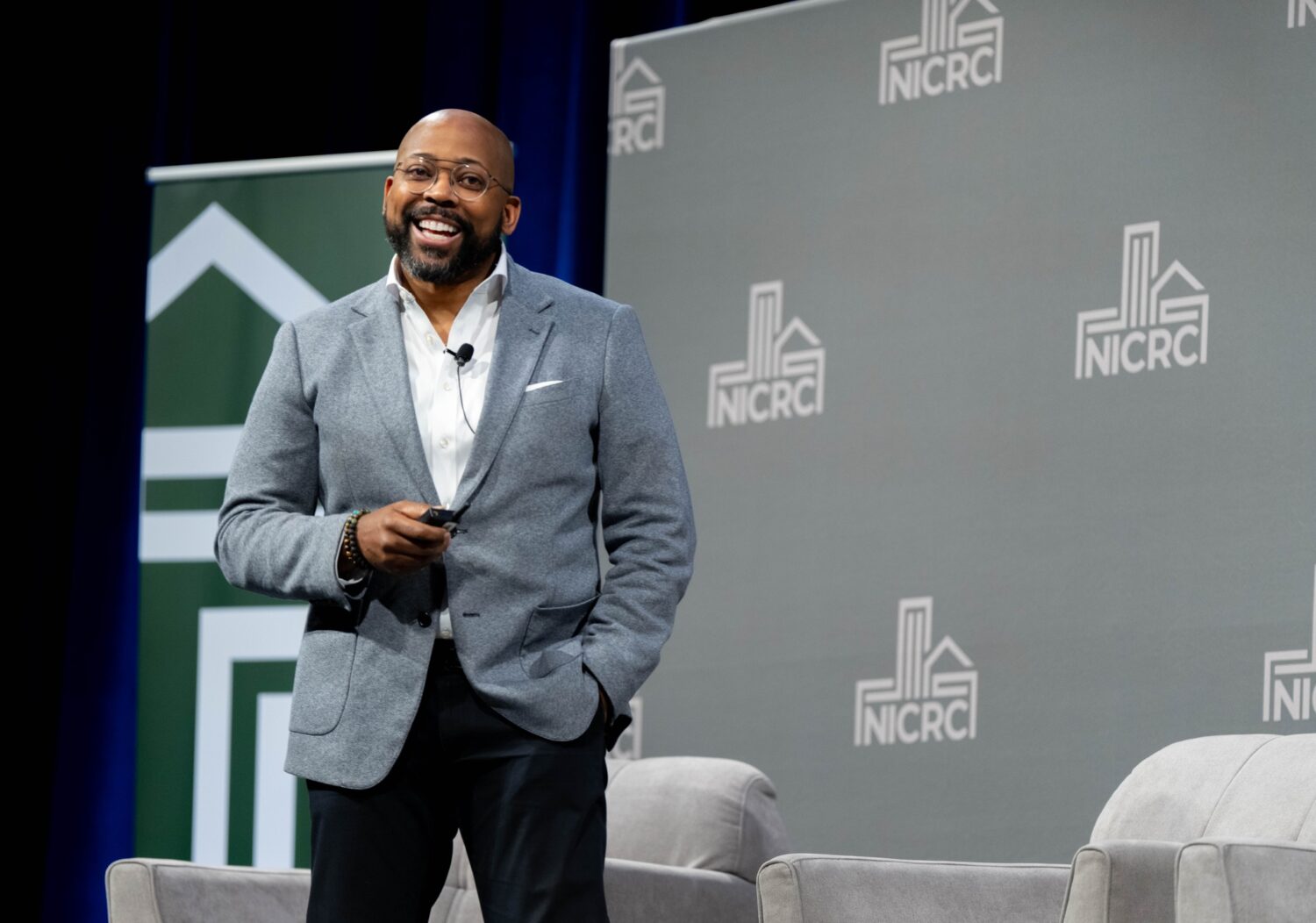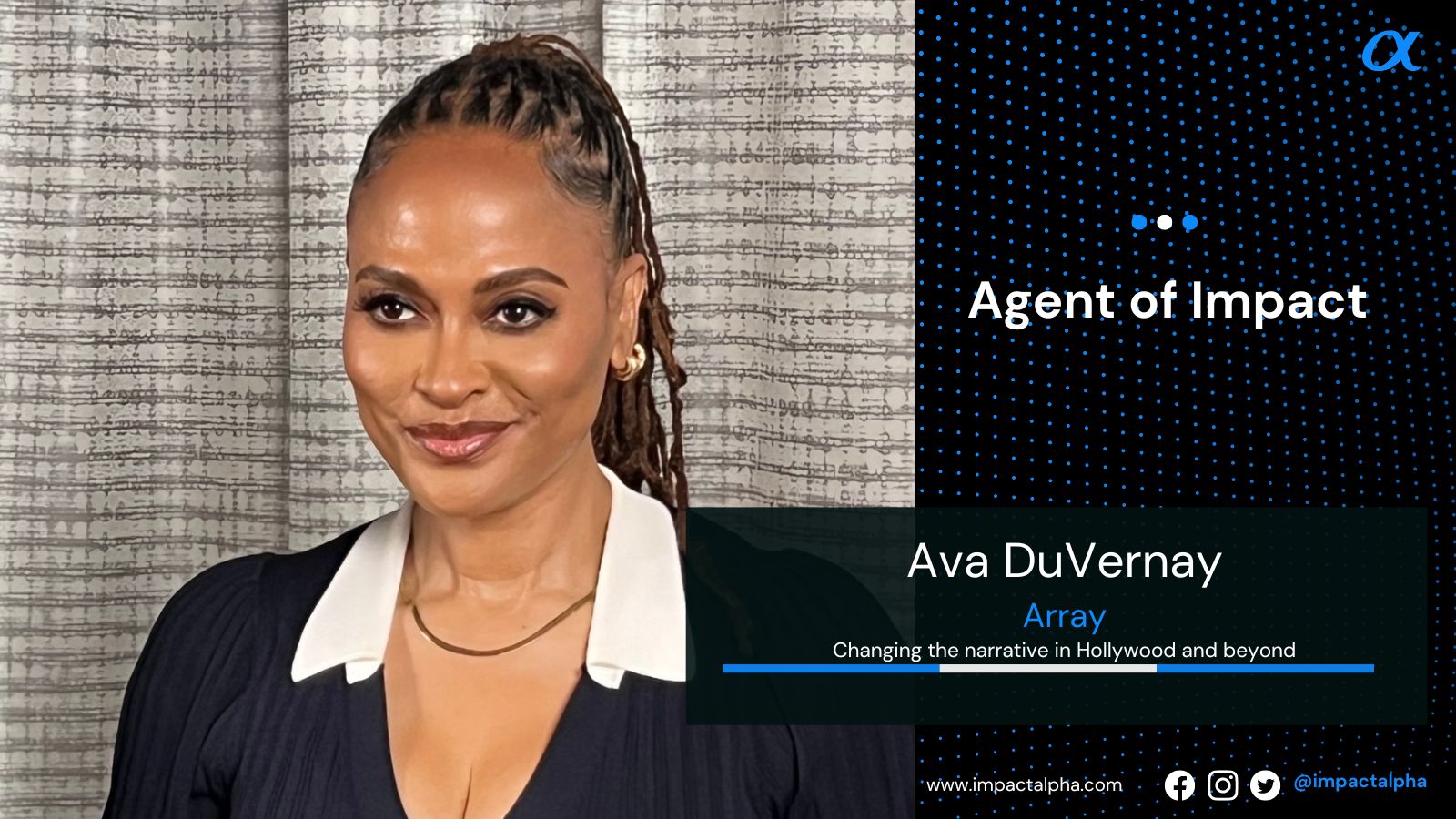Tonya Allen won’t take the bait.
The president of Minnesota-based McKnight Foundation isn’t retreating in the face of right-wing attacks on diversity, equity and inclusion, or DEI. Instead, Allen is putting the heft of the $2.6 billion family foundation behind strategies that redress historic and systematic economic exclusion of people by race.
“As a private institution, we have the right to express our mission as long as we are not discriminating against anyone, and we are not,” says Allen, who took the helm of the McKnight Foundation in 2021.
To redress policies that have led to persistent wealth gaps, McKnight has helped mobilize the Groundbreak Coalition and $1 billion in flexible capital for Black homeowners, entrepreneurs and commercial developers.
Since last year’s US Supreme Court decision banning affirmative action in college admissions, conservative-led groups have brought lawsuits against DEI efforts at corporations, in the military and at investment firms, including Atlanta-based Fearless Fund. The perceived risk has pushed many foundations to backslide on racial-justice efforts, censor their language and narrow the scope of their programs.
“The field of philanthropy, in my opinion, has allowed a case that has not been precedent setting for our field to drive actions and drive our behaviors,” Allen told ImpactAlpha in an interview ahead of this week’s Mission Investors Exchange confab of philanthropic asset owners. Until such a precedent is set, she says, “We will not change our work.”
Investing in equity
Under Allen, the foundation has aligned almost half of its endowment with its climate and equity mission, including through investments in funds like Generation Investment Management’s Global Equity fund and Ownership Capital.
Almost $600 million of that is in more proactive impact investments, in firms like Posigen, as well as funds, such as Inclusive Prosperity Capital, Afterglow Climate Justice Fund, Apis & Heritage and Chicago TREND. More than half of the assets in its public equity portfolio are in the hands of net-zero managers, up from 26% in 2021.
The foundation is also increasing the amount of foundation assets managed by diverse-led managers. With Lenox Park, Mcknight is benchmarking the diversity in its endowment. Roughly 9% of the foundation’s assets are managed by diverse-owner firms, up from 7.6% in 2022.
Diversity “is an arbitrage strategy,” Allen says, who admits the foundation has more work to do to diversify its managers. “There are a set of assets that are undervalued by the market, and we want to make sure that we invest into those assets and into those people and into those managers and benefit from them.”
Philanthropy can get out ahead of the DEI attacks by focusing on “redressing” universal problems, like homeownership, that groups of people are experiencing differently, says Allen.
In Minnesota, for example, more than 70% of the white population are homeowners, compared to 25% of the state’s Black residents. Part of the case for the Groundbreak Coalition is to redress historic government policies that explicitly prohibited the sale of homes to Black buyers.
“If you anchor it in this notion that you’re trying to solve a problem,” she says, “that gives us a stronger argument to be able to execute.”
For Allen, the calculation is simple. “What’s the greater risk?” she asks, that “we might have a strongly worded letter from a legal group or a possible lawsuit related to something that we actually have all the right to do?” Or, she suggests, is it “that people who have systematically been cut out of our economy will not have had the full opportunities to participate in prosperity in this country?”
Not addressing inequity is “a greater risk,” she says.
ImpactAlpha: What’s the overarching goal of the foundation and how have you begun to use investments to achieve that goal?
Tonya Allen: McKnight is a family foundation. We’re based in Minnesota. Our mission is to advance a more just, creative and abundant future. We believe that we can do that through our two imperatives, we call them our headlines and our throughlines, and that’s climate and equity. These are the issues that are going to drive the way the world operates over the next century or more.
What we want to do is to make sure that they are integrated programmatically, strategically and through our investments. They are our throughlines because we see them in every aspect of our organization.
Thus, they show up in our investment portfolio. In 2021, we made a commitment to make sure that our endowment would be net zero by 2050. We have already made a pretty fast head start on that. There are lots of unknowns about this but we know that this is the kind of action that we need most foundations or all foundations in this country to make.
ImpactAlpha: Your progress on reduced emissions, has it cost you in the financial performance of your endowment?
Allen: No, overall, it hasn’t. We’re still performing pretty high. Generally, our endowment performs at the bottom of the first quartile or at the very top of the second quartile when we are benchmarked against our peers. When we make choices, there are some years we’re going to do better or worse. So when energy was up, we were not as up as everybody else in the market. But there are other years where we have seen investments in different parts of our portfolio have really highly performed because of their lesser emissions. I happened to look at a set of big institutional advisors and outsourced chief investments officers, who are doing institutional investments. Our numbers were as good as theirs. We are not giving up any returns as a result of our choice.
ImpactAlpha: That’s the climate side. How are you thinking about investments on the equity side?
Allen: On the equity side, the way that we think about it is this. Our perspective is really an arbitrage perspective. There are a set of assets that are undervalued by the market, and we want to make sure that we invest into those assets and into those people and into those managers and benefit from them. We don’t view it as a concessionary strategy at all. It as a market strategy, we expect and anticipate that we’re going to have the same market returns and hopefully better because it’s an arbitrage strategy.
We are talking about our entire endowment. A large proportion of our endowment is aligned with mission. But they are not all what I would describe as mission-based investments. They’re just aligned. In every asset class, we want diverse managers, managers who haven’t had access to the market but who bring really different lived experiences, different professional experiences, different ideas into the marketplace, and that’s what we’re hoping to do. We want to make sure that we’re looking at those diverse set of actors, when we’re looking for managers in any asset class.
ImpactAlpha: Are you making progress in placing assets to diverse managers?
Allen: What we’ve done over the last couple of years is to try and benchmark and find out how we’re doing. We have a couple of measures about how we think about diversity in our portfolio. So we’re looking at who’s owning the funds that we’re investing in, who the managers are. We’re looking at some of the big manager firms, how diverse are the people who are in those firms? Do they have ownership? Are they in leadership positions? So we’ve been working with Lenox Park to help us do a baseline assessment.
We’ve also made clear commitments to ourselves and to our managers to say to them, “look, this is data that we need, and it’s necessary. We need you to collect this. If you aren’t collecting this kind of information about your company that gives us a sensibility about what you value, how you operate your company. That’s a big indicator for us that tells us about what your approach is when it comes to your investing strategy, and that’s something that we care about.”
ImpactAlpha: Do you have a program-related investment portfolio as well?
Allen: We do. We have a PRI portfolio and that portfolio comes out of our endowment. We don’t use our grants budget for that. It is a part of our endowment. We do have lots of diverse actors in that space. But as you can imagine, that’s a smaller set of investments with less conviction than you would see in a larger investment in our traditional portfolio. We want to even that out. We don’t want that unevenness in our investment portfolio across the board.
ImpactAlpha: On the traditional, market part of the endowment, are there impact funds, or impact asset managers?
Allen: Yes. Because we have had a really robust impact investing strategy over the last 11 years, we have had lots of projects that have come from that smaller portfolio that are now more full investments in our more traditional investment portfolio (Editor’s note: Generation Investment Management, for example). What we’re trying to do is actually not have so much differentiation between the portfolios.
As in a private institution, we have the right and the responsibility to be able to express our values in our work the way we desire to do, as long as it’s not discriminatory. That’s our approach around this work. We’re going to express our values through everything that we do. It’s not going to be just small pockets of our endowment or our grantmaking. It’s going to be across our whole portfolio.
We’re very pragmatic about it. You won’t get like a lot of starry eyes from the McKnight Foundation where it’s like, “full fledge ahead. We’re gonna do this no matter what.” No, we want to be pragmatic about it because what we want to do is to create proof points that this is possible and that others can do this work too. We want to hold the level of risk that any perpetually endowed foundation ought to hold as an institutional investor. “What’s the next wise action?” is the way we think about it. And “how do we keep making those wise actions until we grow our portfolio into a powerful mission oriented machine?”
ImpactAlpha: As a private institution with commitments to equity, how have you reacted to the attacks on diversity, equity and inclusion?
Allen: I’ve just said it and I’ll say it again. As a private institution, we have the right to express our mission as long as we are not discriminating against anyone, and we are not. What I would argue is that one, there is a lot of backlash, which is not mostly against private foundations. I think that private foundations have tended to be more risk averse in this space. I find that we as private foundations have retreated before they’ve even seeing the weapon. And I think that that is not something that we are willing to do at the McKnight Foundation. If we retreat from our work, it’s going to be because somebody tells us we have to, it won’t be because we are afraid that there might be someone who may think that we can’t do it, or that it is related to some case that hasn’t been precedent setting related to the work that we’re doing.
I think the field of philanthropy, in my opinion, has allowed a case that has not been precedent setting for our field to drive actions and drive our behaviors. What is the greater risk: That we possibly would have some backlash on our decision or is it that our earth is burning and that people who are being harmed by all of these climate disasters will have to sit with those long term circumstances? Or that people who have systematically been cut out of our economy will not have had the full opportunities to participate in prosperity in this country?
With the changing demographics of the country, there is a risk that if we don’t include them, then it actually weakens our economy and weakens our democracy. I see that as a greater risk than whether or not we might have a strongly worded letter from a legal group or a possible lawsuit related to something that we actually have every right to do, because it is legal precedent that we have the right to do it today. Until we have a legal precedent. We will not change our work. What I am afraid of is that we have lots of philanthropic organizations that are moving without legal precedents.
ImpactAlpha: Is there a more proactive response that’s needed from the philanthropic community, to protect or organizations like Fearless Fund that have come under fire?
Allen: I would argue yes. There are quite a few people trying to think through what that looks like. We need to help people understand that an attack on DEI is not just an attack on people of color. It’s an attack on women. It’s an attack on people with disabilities. It’s an attack on people who choose to love whoever they choose to love. Most Americans agree with DEI. What we tend to do is to assume that because there are a few loud voices, that those loud voices are winning. In actuality, when we look at what has come out of a Supreme Court, outside of that one decision that was related to higher ed, where they actually said even in that the military academies can use race, that’s the only loss that we’ve taken in the Supreme Court. I know we all anticipate that we might take more, but until we take more, I’m not retreating.
I think that there are ways that we can get in front of this. And we need to get in front of it. I think one is this issue of redress. I think we’d have to be clear about our strategies. Why are we using these strategies? What are we actually redressing? So we shouldn’t just use race. If you’re using race for a strategy, it should be to do redress against the harm or to solve a problem. So be really clear about that.
Programmatically or strategically when we talk or use DEI, many organizations are being race explicit for the sake of being race explicit. If you’re doing redress, then that means sometimes you’re dealing with specific races who have a set of experiences, but sometimes you might also be dealing with the majority race in our country who also need redress. If you anchor it in this notion that you’re trying to solve a problem, that is really about a universal problem, but you have targeted strategies, and that gives us a stronger argument to be able to execute against our work.
ImpactAlpha: Is there a specific example of the redress strategy McKnight is involved in?
Allen: One project that we’re working on sits in the middle of multiple kinds of capital tools, and also a cross sector partnership across the Twin City region. Groundbreak is a coalition of capital deployers and other community actors, including financial institutions, insurance companies, banks, corporations, foundations, nonprofits, government entities and CDFIs. What we’re trying to do is look at is “how do we strengthen our economic conditions in our region?”
Homeownership as a good example. All of the data shows, across this country, that if you have communities that reach a 70% home ownership rate, that those communities are more likely to be thriving communities. Well, in the Twin Cities, we actually are lucky enough to have reached that threshold with certain parts of our population. If our universal goal is 70%, we have our white population in the region have reached that. They’re actually over 70%, which is fantastic.
So what we’re trying to do is to say, “Now, we know that there are other groups in our region that are below that target goal.” For example, African Americans are at 25%. So it’s a 50% gap. We actually have the largest gap in the country. So we’re not just trying to address the gap. We’re trying to redress the gap.
Why am I using redress, in particular, related to this? When people sold their homes, there were racial covenants that said people could not purchase homes in certain places. We had policies and practices that actually excluded people, that were government ordained and implemented and executed by the private sector, that harmed people. We intentionally did that.
ImpactAlpha: How do you redress that?
Allent: We’re working with banking institutions to one, use federal rules related to the Community Reinvestment Act, to design a special purpose credit program that would be universal in our region. It would be the same one. The banks are using the same rules, so that if you’re a Black homeowner, you can come into an institution, any of these financial institutions, you get the same rates, the most competitive rates, based on federal rules that said that you can do this because of redress issues. Now we’ve changed up the ecosystem. We’ve changed up the market.
One of the second tools we’re using is downpayment assistance. So how do we get equity into this for these families so that you really are getting wealth building? So that after you save you have more. If you were trying to start a business after you were using your home as equity to start that business, how are we bringing in low cost patient capital for guarantees so that you’re using your home to be able to leverage it, but you’re not actually having to put it at complete risk?
You can build wealth by stacking up different opportunities, which is really the way that we’ve seen most Americans be able to do that. We’re trying to use Groundbreak to reorient and redesign these financial systems and basically create a new ecosystem that would allow us to be able to help families move and grow wealth at scale. We anticipate that we will be investing about $5 billion over the next 10 years. This fall, we announced that we raised $1 billion dollars across the board from these many institutions.
We’re operating within federal law, within federal practice. We’re also anchoring ourselves in understanding, this isn’t just good for the families who we’re supporting. This is good for that 72% of people who have homes, because we want those homes and we want this community to be even further stabilized. We want people to want to move here, to be attracted to the Twin Cities. One of our biggest challenges is that we have talent that constantly is leaving. We have three jobs open to every one person looking for a job in the region. We have to create a condition where people want to come. Doing this actually enables all of us to be able to thrive.
ImpactAlpha: That’s an example of a project that you’ve had in motion and you’re not retreating from. It serves the purpose of redressing legal obstacles that were placed in front of specific races and now operates within the law.
Allen: We as an institution, and other foundations, and other actors are using our heft as capital deployers to bring other capital deployers to the table to act and behave in a different way. It’s not just about how we act with our own money, but how we use our money to leverage and actually get other actors to behave differently.
ImpactAlpha: Any last message?
Allen: When it comes to DEI and ESG, we believe that both of these things are extraordinarily important for our economy and for our society. We think it’s important for workers because we think that it creates opportunities. We think it’s important for companies because we think it leads to excellence and innovation. And we think it’s good for the economy as a whole because it advances our competitive edge globally. We’re not backing down off of that.
We do this because it goes beyond just our values and doing the right thing because we believe it brings values to our investors. It brings value to business, workers, and customers, as I indicated. It should be incorporated in everyday business and investment practices. We believe that we need to center both DEI as well as ESG in all of our practices. We resist any effort that works to dismantle or demonize either of those things. If we allow that to happen, it will cost us our competitive edge as a country.











